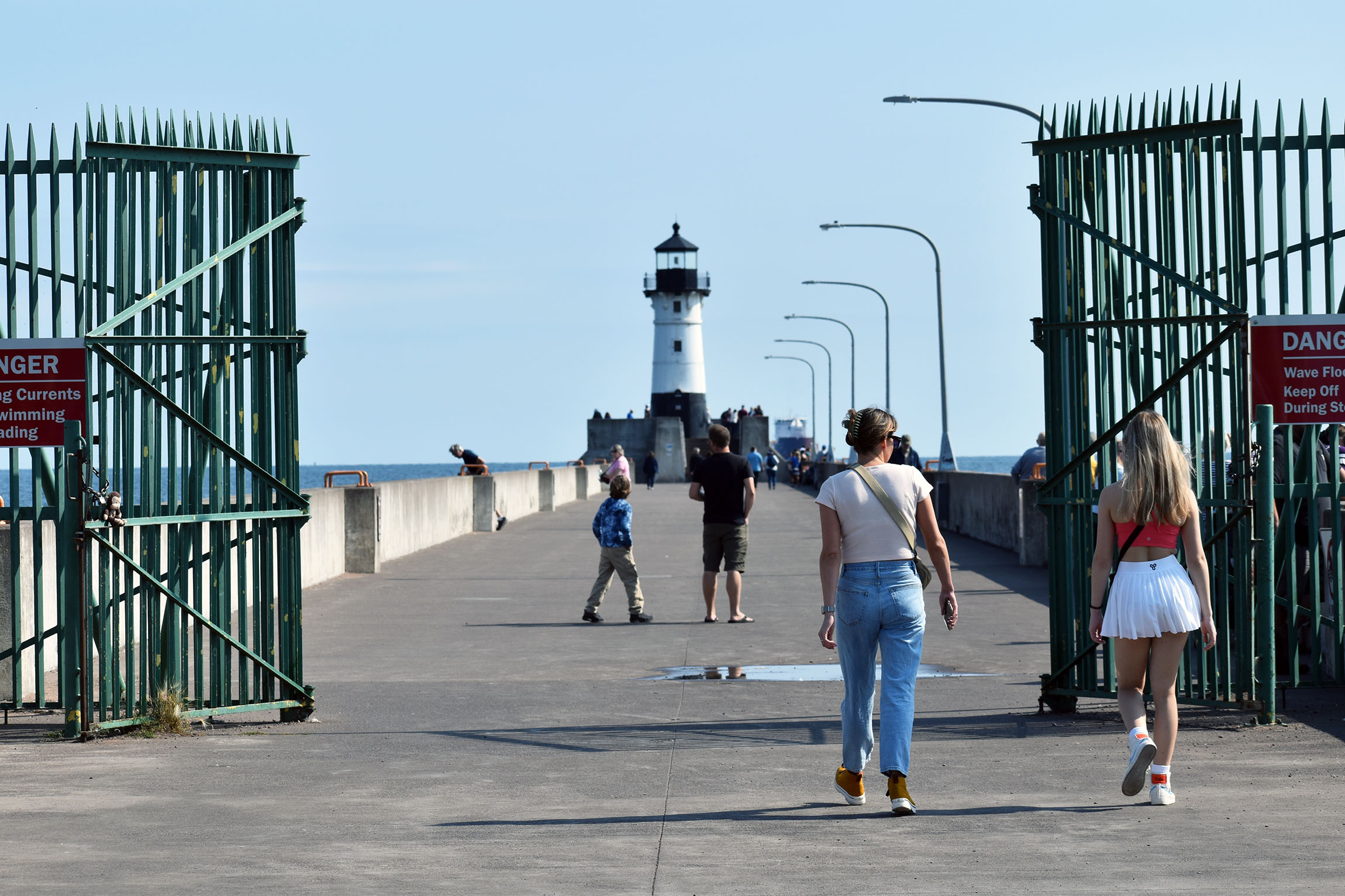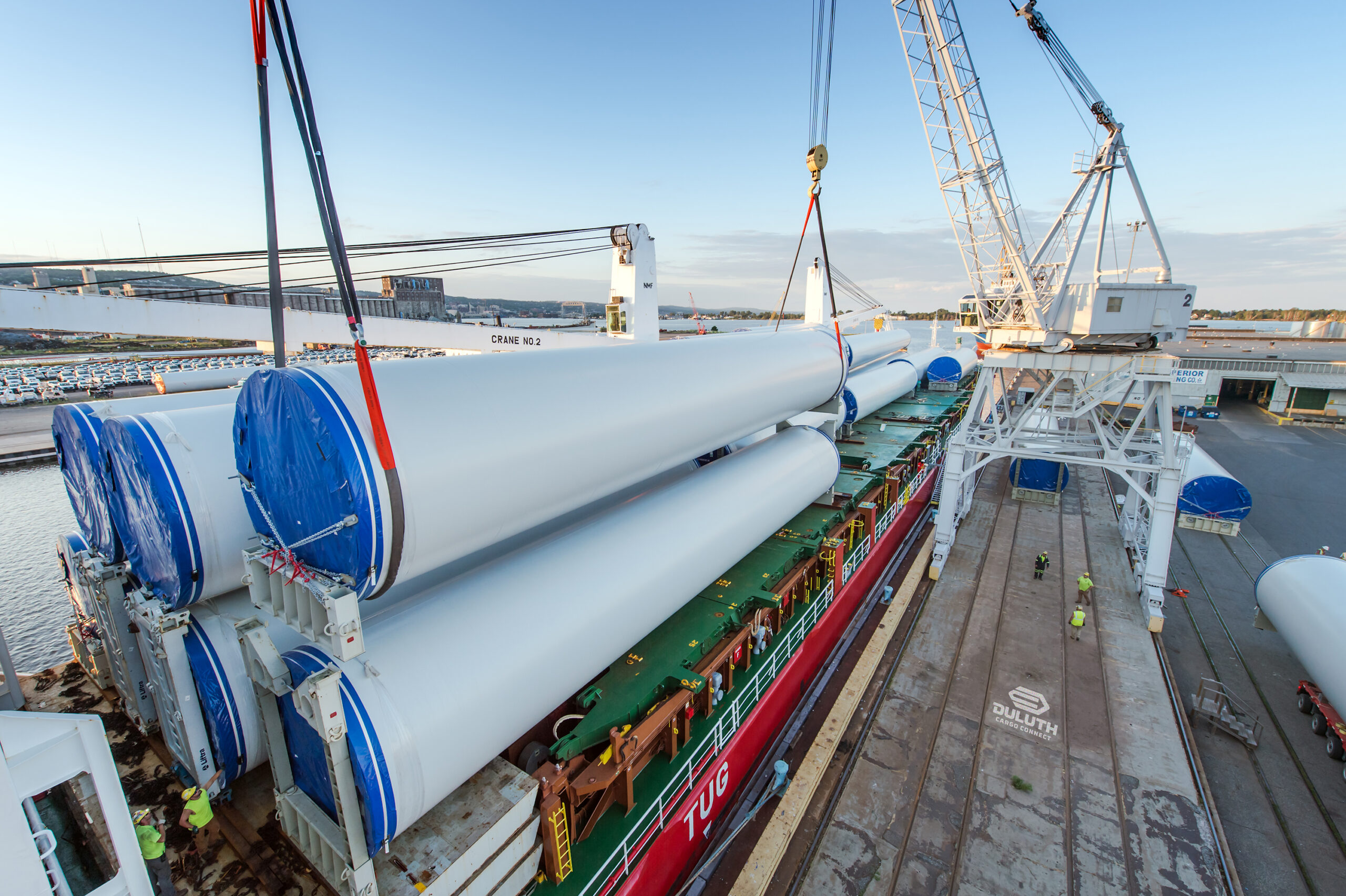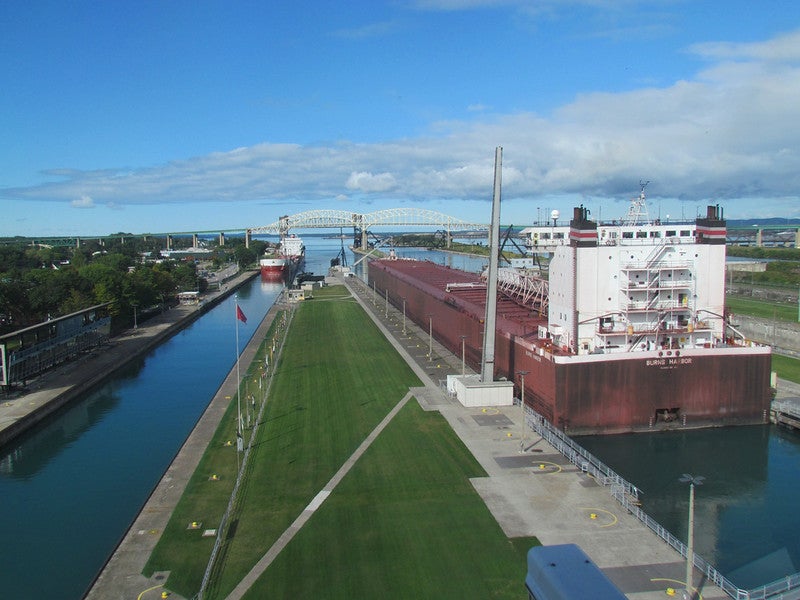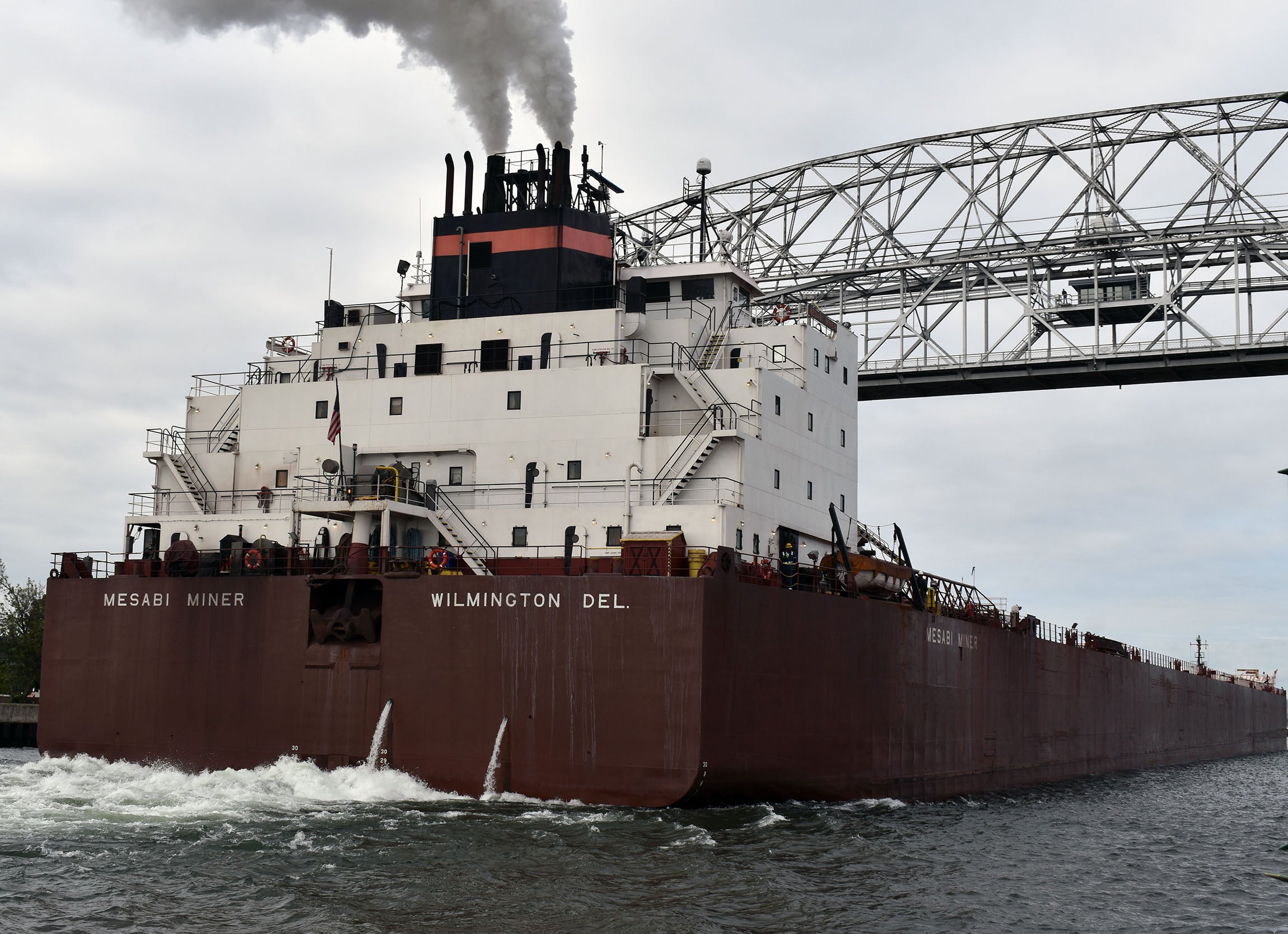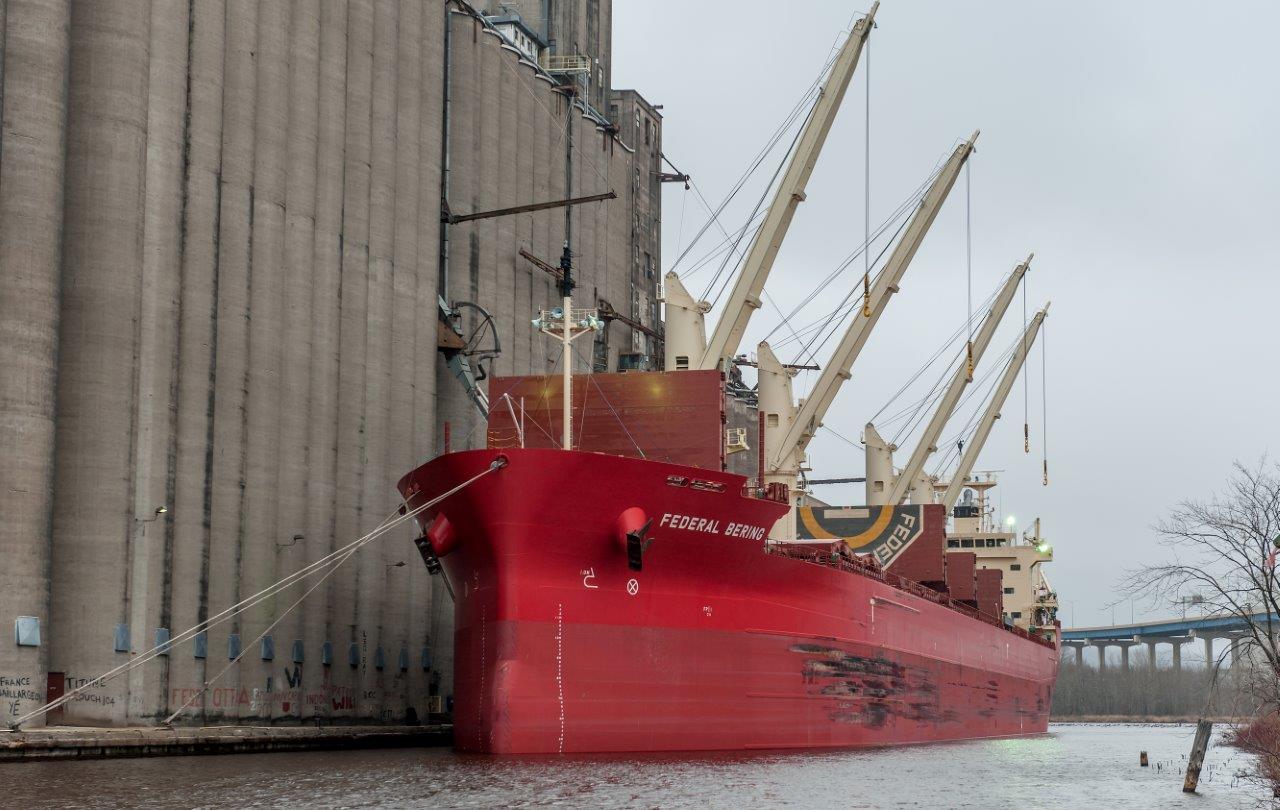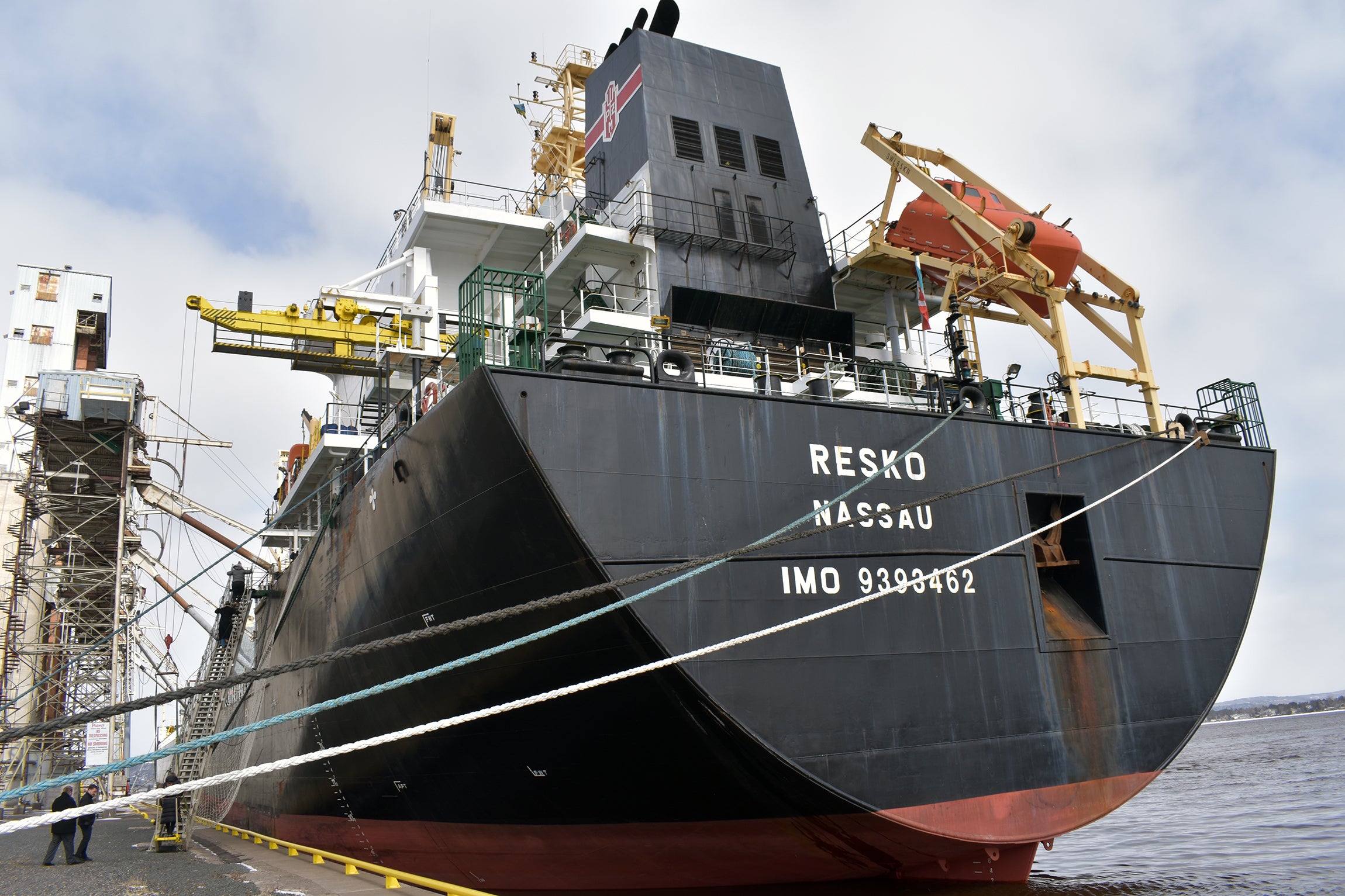Next week, the shipping season concludes at the Port of Duluth and Superior, and with it, the impending retirement of the facility’s executive director.
Deb DeLuca is leaving the job after nearly seven years at the helm and a decade in management of the facility hailed as the largest freshwater port in the world.
Much of her tenure included the pandemic, which upset supply chains globally and regionally, including shipments in, out, and through Duluth and Superior. But she and her staff weathered through, noting four straight years of increased tonnage.
Stay informed on the latest news
Sign up for WPR’s email newsletter.
“We’ve improved the infrastructure at the terminals, predicated on the vision of growing a multi-modal hub that can keep our regional industries competitive in the global marketplace,” said DeLuca, whose retirement will be effective in May.
That worldview may pose a challenge for her successor if tariffs proposed by President-elect Donald Trump come to fruition, especially those targeting Canada and Mexico. DeLuca, who is the first woman to lead the port, spoke about navigating those trade and political winds with WPR’s Robin Washington on “Morning Edition.”
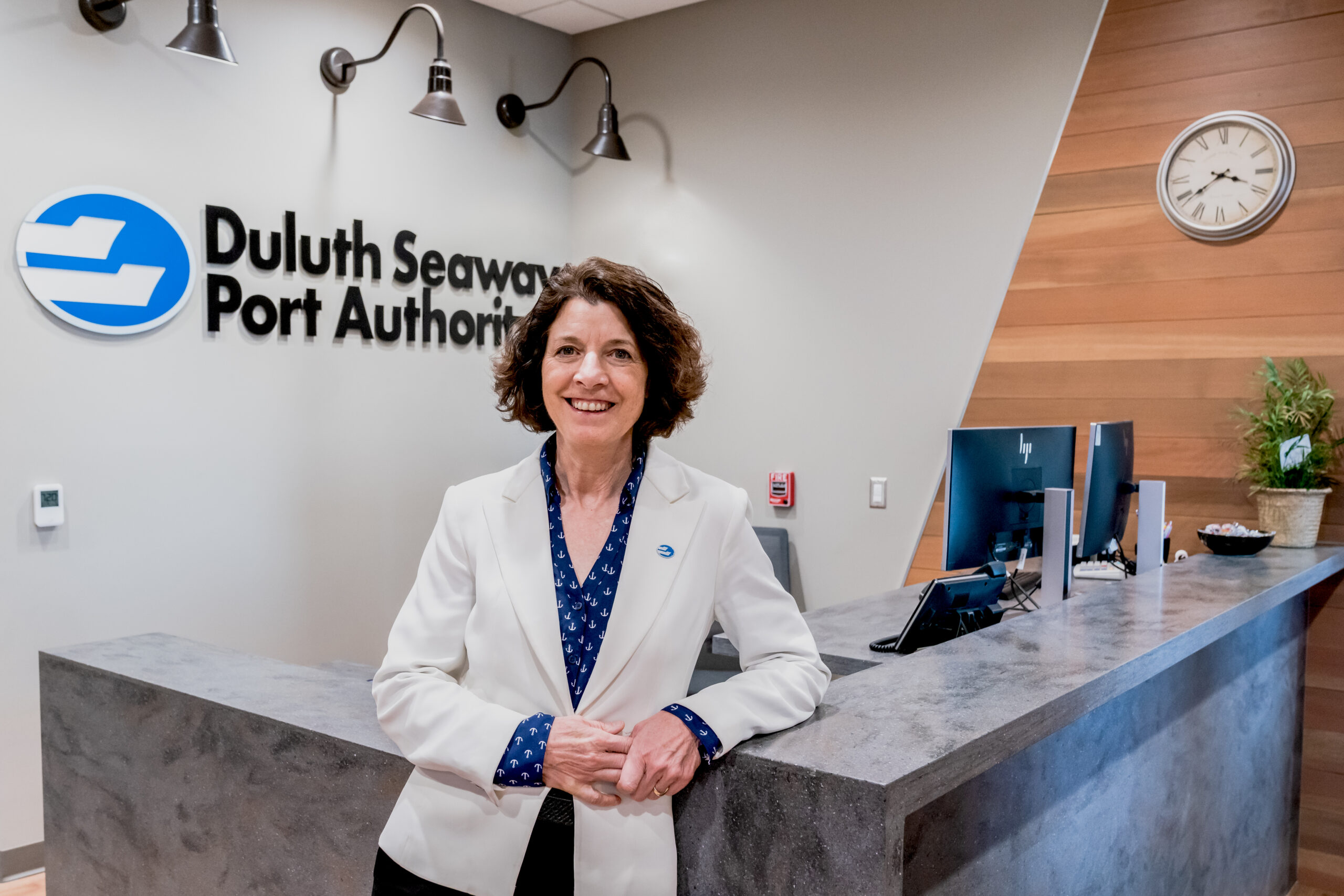
This conversation has been edited for clarity and brevity.
Robin Washington: At the end of each shipping season, you usually give us a wrap-up and forecast for the coming year. How about an assessment for the last six years?
Deb DeLuca: From a personal standpoint, it’s been the highlight of my career. It’s also been a period of growth for our terminal. Coal tonnage dropped over the past 10-plus years, and we’ve been looking to increase cargo diversity to offset that.
RW: One of your predecessors was the late Adolph Ojard, who hailed from a family of tugboat captains. Your background was a little different.
DD: It was indeed. Port authority directors come from a wide variety of backgrounds, because it’s a position that requires a diverse skillset. My education was in biochemistry, molecular biology and environmental chemistry and public policy flowing out of that. I worked in state government, local government and the private sector before coming to the port authority.
RW: The port achieved the ability and certification to handle container cargo in the last few years.
DD: Yes. We worked with Customs and Border Protection to develop the capability to handle containers at our terminal, both from a rail and road perspective. We are the second port on the Great Lakes to do so. We started handling those containers in 2022 and the next year added regular liner service between Duluth and Antwerp. We also had enough shipments from the Mediterranean to have liner surface coming out of that region. And we have a much greater reach within North America than we expected, with cargo coming from as far away as the Pacific Northwest and getting delivered to Alberta.
RW: Related to that geography, you’re leaving as the new administration comes in with president-elect Trump’s threatened tariffs on Canada and Mexico. What’s your advice to your successor for navigating the trade and political winds?
DD: Tariffs are definitely a delicate balance for the Great Lakes and for our port. They’re a double-edged sword. In the case of foreign steel dumping, which was something that was truly happening, tariffs helped support domestic steel production, which increases demand for Minnesota iron ore that makes up about 55 percent of our total tonnage.
But tariffs can also lead to retaliatory trade actions by other countries, which can hurt our port because it tends to reduce exports of key cargoes like grain. In terms of advising my successor, I’d encourage staying deeply involved in port trade associations and keeping in touch with our congressional representatives.
RW: What’s been the most intriguing or interesting experience you’ve had — maybe looking out your office window and saying, “What’s that?”
DD: Oh, my! We have some really interesting pieces of general cargo move through our terminal. The massive wind turbine parts that come to our terminal and get sent off to their final destination, and the logistics of having to do so through street intersections and onto the highway — that’s an eye opener.
If you have an idea about something in northern Wisconsin you think we should talk about on “Morning Edition,” send it to us at northern@wpr.org.

